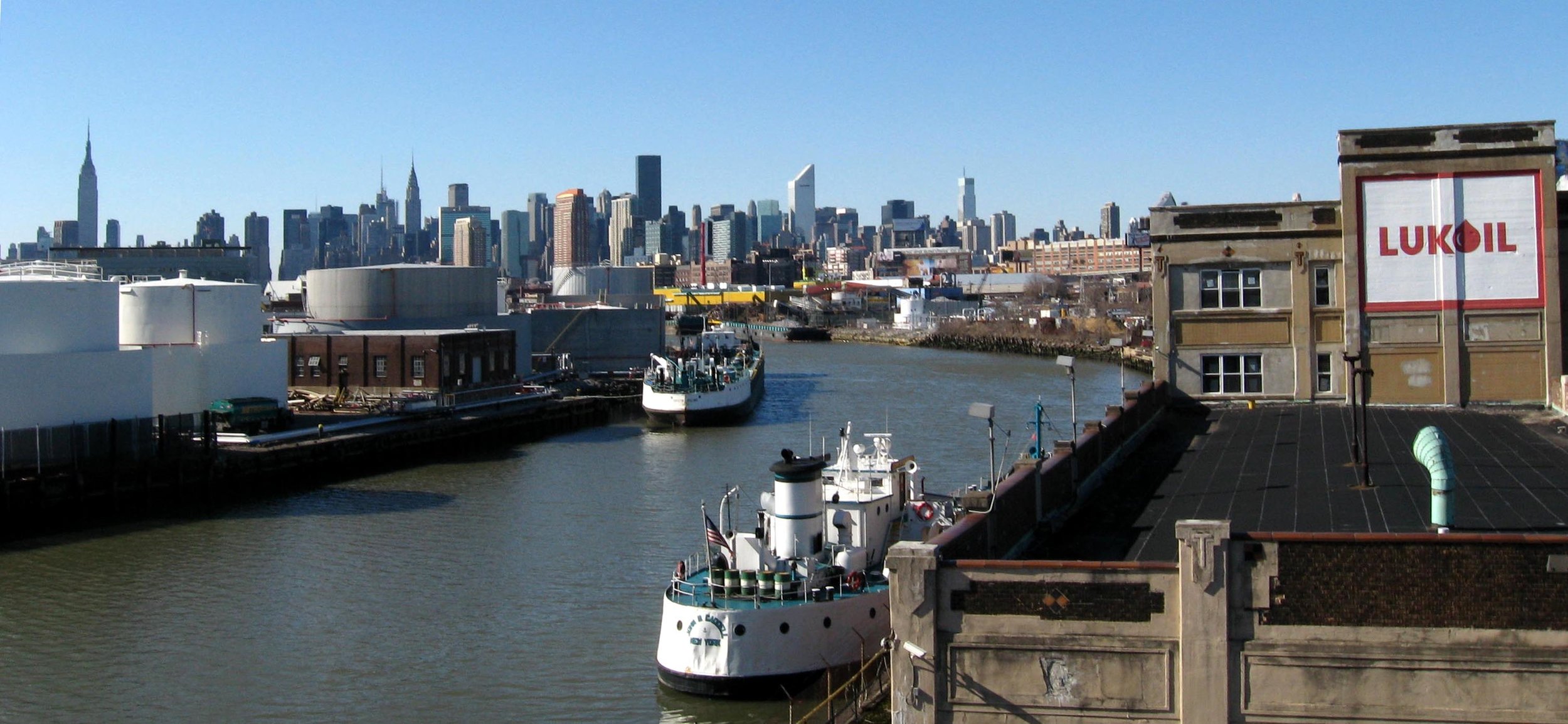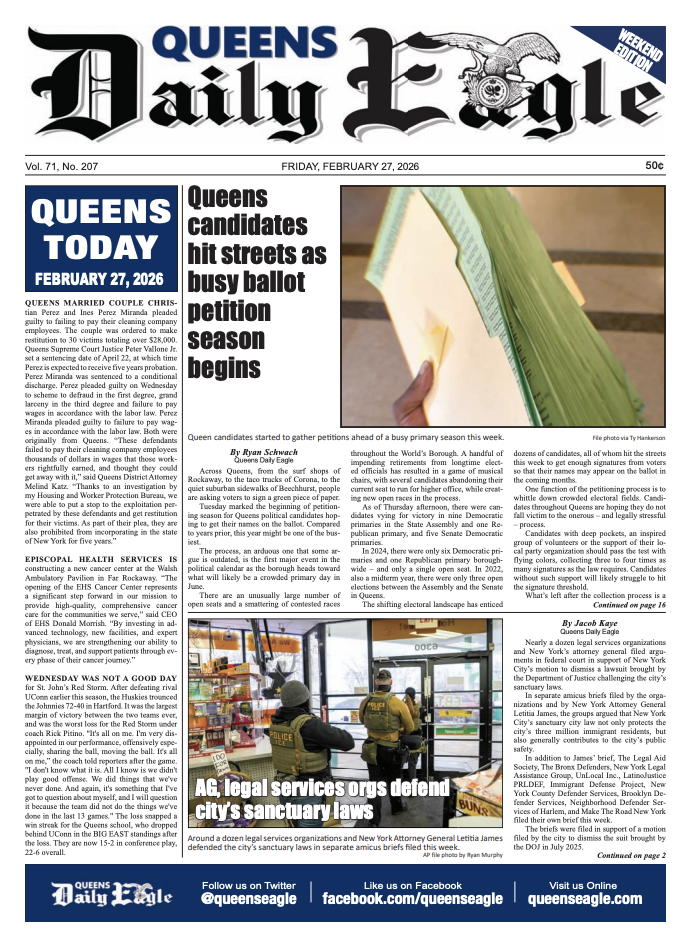U.S. Rep. Velázquez demands $300M for Superfund sites
/Newtown Creek, which straddles the border of Queens and Brooklyn, would stand to benefit from Nydia Velázquez’s call for additional funds to Superfund sites. Eagle file photo by Cody Brooks.
By Scott Enman
A U.S. representative from Queens, whose district includes three federal Superfund sites, is calling for an increase of more than $300 million to fund the cleanup of the nation’s most toxic locations.
Citing inflation and a need to continue the momentum of ongoing remediation, U.S. Rep. Nydia Velázquez, whose jurisdiction includes the Wolff-Alport Chemical Company in Queens and the Gowanus Canal and Newtown Creek in Brooklyn, wrote a letter to the Interior, Environment, and Related Agencies subcommittee, asking that the organization increase Superfund appropriations to $1.46 billion for fiscal year 2020.
“With three Superfund sites in or touching New York’s 7th Congressional District, including the Gowanus Canal and Newtown Creek, I’m acutely aware of how important it is to provide the Environmental Protection Agency adequate resources to properly administer this program,” Velázquez told the Eagle.
“Given the public health effects that environmental sore spots can have on families and children, this is a question of social and environmental justice,” she continued. “I’m pleased 100 of my colleagues have joined me to call for boosting the program’s funding.”
The funds would go toward the Hazardous Substance Superfund Account included in the subcommittee’s appropriations bill.
Velázquez sent a letter on Thursday to U.S. Rep. Betty McCollum of Minnesota, the chairperson of the subcommittee, requesting the increase in funds.
While McCollum did not explicitly say she would accept Velázquez’s exact recommendation, she did commit to aiding the EPA in the face of President Donald Trump’s budget cuts to the environmental organization.
“President Trump’s EPA budget declared Superfund, which funds cleanup of toxic and contaminated sites, to be the agency’s top priority, yet cut the program by $130 million,” McCollum told the Eagle.
“I reject President Trump’s cynical attempt to undercut the EPA’s work by 31 percent, and I will strongly support EPA programs that protect human health and the environment — including Superfund — as we work to assemble next year’s funding bill.”
The $300 million-plus boost in federal dollars for EPA would help revitalize more than 1,300 contaminated sites across the nation, including Brooklyn’s 1.8-mile canaland its 3.5-mile creek, both of which were declared Superfund sites in 2010.
Nydia Velázquez, whose district contains three Superfunds sites, wants to devote an additional $300 million toward cleaning up the nation’s federal Superfund sites. Photo courtesy of Velazquez’ office
EPA reiterated its commitment to cleaning up the nation’s most polluted sites, regardless of where the funds come from, but noted that private parties — not the federal government — pay for more than 70 percent of Superfund cleanups.
(For example, in the case of the Gowanus Canal, National Grid and New York City are on the hook for paying for the majority of the cleanup.)
“EPA will continue to prioritize activities and resources at National Priorities List sites that present the highest risk to human health and the environment in accordance with funds provided by Congress, and supplement that work with funds from private parties,” Ken Labbe of the EPA told the Eagle.
Velázquez has previously supported efforts to expand the Superfund program. She proposed a new “Superfund Tax” on all chemical and large oil companies in May to help clean up orphan sites, where the parties responsible for the pollution cannot be identified or are unable to pay for the remediation.
The bill would have also awarded a tax deduction of up to $10,000 for small businesses that were forced to relocate due to the cleanup process.
The act was referred to the Committee on Ways and Means and the Committee on Small Business, but it never moved forward. Velázquez, however, plans to reintroduce the bill to the current Congress.
A similar tax on chemical and oil companies was passed in 1980, but Congress allowed it to expire in 1995, though it raised roughly $1.25 billion annually, according to the federal Government Accountability Office.




